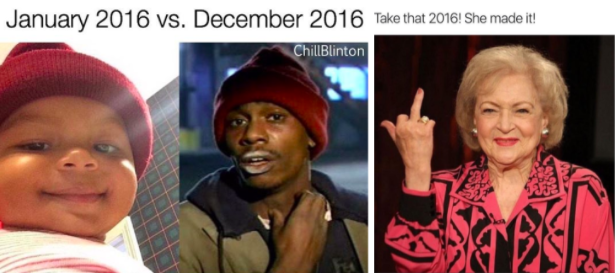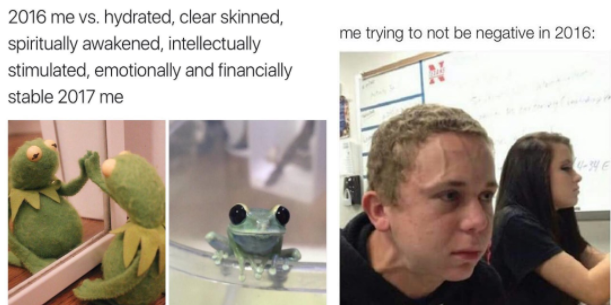Lauren Cohen
Voices Editor
As 2016 drew to a close, social media teemed with accusations – convictions even – of the supposedly wretched year. “Goodbye 2016, we won’t miss you.” “Thanks for taking all of our musicians… and Harambe.” Such allegations personify the year as though it had biting and malicious intentions. 2016 featured a highly divisive presidential election, the Orlando nightclub shooting, Brexit, the Brussels attack, the Aleppo crisis, and the death of many celebrities, including David Bowie, Prince, Carrie Fisher, Debbie Reynolds and Muhammed Ali amongst others.

Also in 2016, the gene responsible for ALS was found after years of research, global malaria rates dropped by 60%, the tiger population grew for the first time in a century, global suicide rates dropped, a mind-controlled robotic arm was created, the rights of transgender individuals were affirmed by the Rabbinical Assembly, and Harriet Tubman was confirmed to be the first woman on American currency.
Yet, at the end of each year, people seem to focus solely on what went wrong and perceive promise in the upcoming year. When the next year finally does arrive, people continue to brood. This attitude is emboldened and encouraged by news outlets and social media accounts that highlight the unpromising and threatening aspects of the year that was supposedly going to be “the best one yet.” What results is a ceaseless and dreadful pattern.
It goes without saying that each year includes both regressive and progressive incidents, ones worthy of condemnation and and others worthy of praise. What is less obvious is the responsibility of the individual – not the year – to bring happiness. How? By celebrating advancement over failure.

Although 2016 memes make it seem as if the year itself had some sort of fatal flaw, the real flaw lies in our society’s ubiquitous promotion of self-victimization. The memes that floated through Instagram and Facebook in December were all funny on the surface; one can’t help but chuckle at how relatable the presented issues are. One feels a rush of relief and warmth when it becomes clear that others are going through similar struggles. But beyond the instant gratification and the hearty laugh lingers a subconscious residue of cynicism and self pity that primes us to focus on failure and disappointment.
Defeatist memes are merely a component of America’s flawed media culture. Unprecedented advances in medicine, social equity, and environmentalism were all overshadowed by coverage exaggerating both Donald Trump’s threatening comments and Hillary’s deceitfulness. Subjected to a media industry that thrives off of our fear and subsequent interest, we are fed a disproportionate amount of negative imagery.
In light of these issues, it is incredibly important that anyone who seeks happiness takes the dismal realities portrayed by 2016 memes and news outlets with a grain of salt. While it is important to be aware of current events and global issues, it is also important to distance oneself from the pessimistic and dramatic nature of media. It presents a skewed image of the human experience – one likely to influence the way you see your own life. Happiness becomes increasingly elusive when you remain engulfed by reductionist and exaggerated perceptions of reality – or a year, for that matter.
I suggest separating yourself from this culture and, for example, analyzing how 2016 was for you as an individual. What were some of your greatest moments and accomplishments? Where did you fall short? Allow the answers to these questions – rather than a meme or a news story – to shape your perception of 2016. Next time you see a meme depicting how terribly your day, life, or year is going, I suggest that after you laugh and feel validated, think about how bad things truly are and realize how many blessings you are ignoring.




